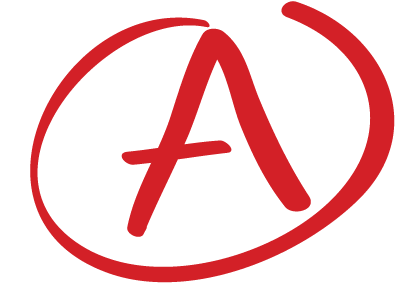What are these old school studying and homework habits? I don’t know but everything seems to be “vintage” or “sustainable” nowadays. So, I decided to see if the words could apply to studying and homework. Let’s start by looking at the definitions of the words vintage and sustainable.
vin·tage
noun: vintage; plural noun: vintages
- the year or place in which wine, especially wine of high quality, was produced.
Similar:
year
- a wine of high quality made from the crop of a single identified district in a good year.
wine.
- the harvesting of grapes for winemaking.
- the grapes or wine produced in a particular season.
- the time that something of quality was produced.
“rifles of various sizes and vintages”
adjective: vintage
- relating to or denoting wine of high quality.
“vintage claret”
- denoting something of high quality, especially something from the past or characteristic of the best period of a person’s work.
sus·tain·a·ble
adjective: sustainable
- able to be maintained at a certain rate or level.
“sustainable fusion reactions”
- conserving an ecological balance by avoiding depletion of natural resources.
“our fundamental commitment to sustainable development”
able to be upheld or defended.
“sustainable definitions of good educational practice”
Vintage much means something from the past of high quality, or let’s go with that and sustainable means being able to maintain something at a certain rate, level; something that is upheld of defended. How can these words describe homework habits and studying? Let’s first look at two different types of learning.
Conceptual and factual learning.
What’s the difference? Conceptual learning is the process of learning to organize the material in logical mental structures. A “top-down” approach to learning and ideas, seeing the big picture first then working down to specifics. It leads to thinking at more advanced levels. Factual learning is more learning and storing information in your head to be retrieved and used later. Conceptual learning is using this material that has been stored. [2,3] When you think of learning in this manner, there is an element of “memorization” with learning but there is also learning the concepts surrounding the information you are learning so that you know when to use the information you are storing.

Mathematics is a language. So when you’re in school and you are learning all this stuff that you have know idea “where it is used in the real world?”, what you really doing is learning and storing information that you will be using later. Unfortunately, when students are learning this information to store for later, they want to know the concepts around the information they are using and where it will be used at the same time. And in many cases, it is not as straight forward where this mathematics is used because it is more advanced and hidden in the background. But at the same time, it is used in every day. For example, when you’re baking or cooking, and you want to make a smaller or larger batch of cookies you will need to know how to take a fraction or greater multiple of the quantity of the ingredients in the recipes. If you are travelling and using a different currency that what you normally have, understanding the conversion ratio can help you decide how much money from your home country you will need to get around in the country you are visiting. And of course, calculating tax when you’re paying for things requires basic arithmetic. These are a few very basic examples of where mathematics and arithmetic is used in our lives. Statistics is a related area of mathematics that is used in many areas including sports. So, if you play a sport or follow a sport there are probably “stats” associated with you or your favorite player. These ‘stats’ can be used in many ways. But, that’s another post!
One method of developing any particular skill is repetition, repetition, repetition. It is boring but it does eventually work if you keep at it. This is proven time and again in sports. So why can’t it work in other areas like learning mathematics, in particular the elementary arithmetic and mathematics taught in schools? It does work but it is just so boring for so many students. It is challenging when you do not understand what you are doing. Repeating “not understanding” over and over again is not fun. But once you do understand how to do a particular type of exercise and example, the best way to “get it to stick” is through practice, practice and more practice. While still boring, now you’re getting the answer write and hopefully developing more confidence. This minimizes the boredom. I would consider this sustainable studying. It’s old school but it’s tried and tested and works. There’s no tricks or quick ways to getting around learning something and getting it to “stick”. However, getting over that initial hump of not understanding over and over again and developing more frustration and distaste for a subject, is the first step. This can be tough. This is where vintage homework and studies are probably the best way. What do I consider vintage homework?
Steps for vintage homework.
- Go to class,
- taking notes by hand, not just printing them out,
- reading the textbook section that was covered in class and then
- doing the homework that was assigned before the next class, by hand, with a pencil on paper.
Very old school, I know but, I have noticed that the homework habits of writing can actually help with the learning and remembering material. Tests have been performed and people who write down terms etc. by hand remember them better, for example vocabulary. Writing material down leads to better recall of the material and students write notes by hand usually do better on tests. [1] When someone writes out notes by hand, they end being more succinct and take the main and important points and write them down while those that type up their notes, usually type on the notes verbatim.
Sustainable studying would include,
- taking notes by hand (Go to class and take your own notes!)
- learning and storing the facts in your head (Learn the definitions, theorems, identities, formulas. Create your own “cheat sheet”.)
- and then learning the concepts surrounding those facts you are learning and storing. (Do all the exercises and problems and more that you are assigned.)
Teachers, professors and instructor do not help the learning process by providing notes typed up and online. It may be more convenient and seems to save time but in the end for learning, it would be wiser to have students actually write and make their own notes from the material presented during the class. These homework habits of old still can hold their own when it comes to education than the latest technology.
References:
- Handwriting vs. Typing: How to Choose the Best Method to Take Notes, Effectiviology, URL: https://effectiviology.com/handwriting-vs-typing-how-to-take-notes/
- What is conceptual learning, evolve.elsevier.com, URL: https://evolve.elsevier.com/education/concept-based-curriculum/conceptual-learning-definition/
- Some thoughts on conceptual learning and information retrieval, Robert D. Sutherland, March 1969, robertsutherland.com, URL: http://www.robertdsutherland.com/writings/conceptual_learning.html
- vintage
- Note-Taking: Writing vs. Typing Notes, Jessie S., September 2018, studyskills.com, URL:https://studyskills.com/students/note-taking/
- Handwritten notes vs. typed notes: is there a difference?, Skylar Anderson, studyright.net, URL: https://www.studyright.net/blog/handwritten-notes/
- A Learning Secret: Don’t Take Notes with a Laptop, Cindi May, June 2014,
Scientific America, URL: https://www.scientificamerican.com/article/a-learning-secret-don-t-take-notes-with-a-laptop/ - Why Should Students Write in Math Class?, Tutita M. Casa, Kyle Evans, Janine M. Firmender and Madelyn W., Colonnese, February 2017, Volume 74, Number 5, Literacy in Every Classroom, URL: http://www.ascd.org/publications/educational-leadership/feb17/vol74/num05/Why-Should-Students-Write-in-Math-Class%C2%A2.aspx




